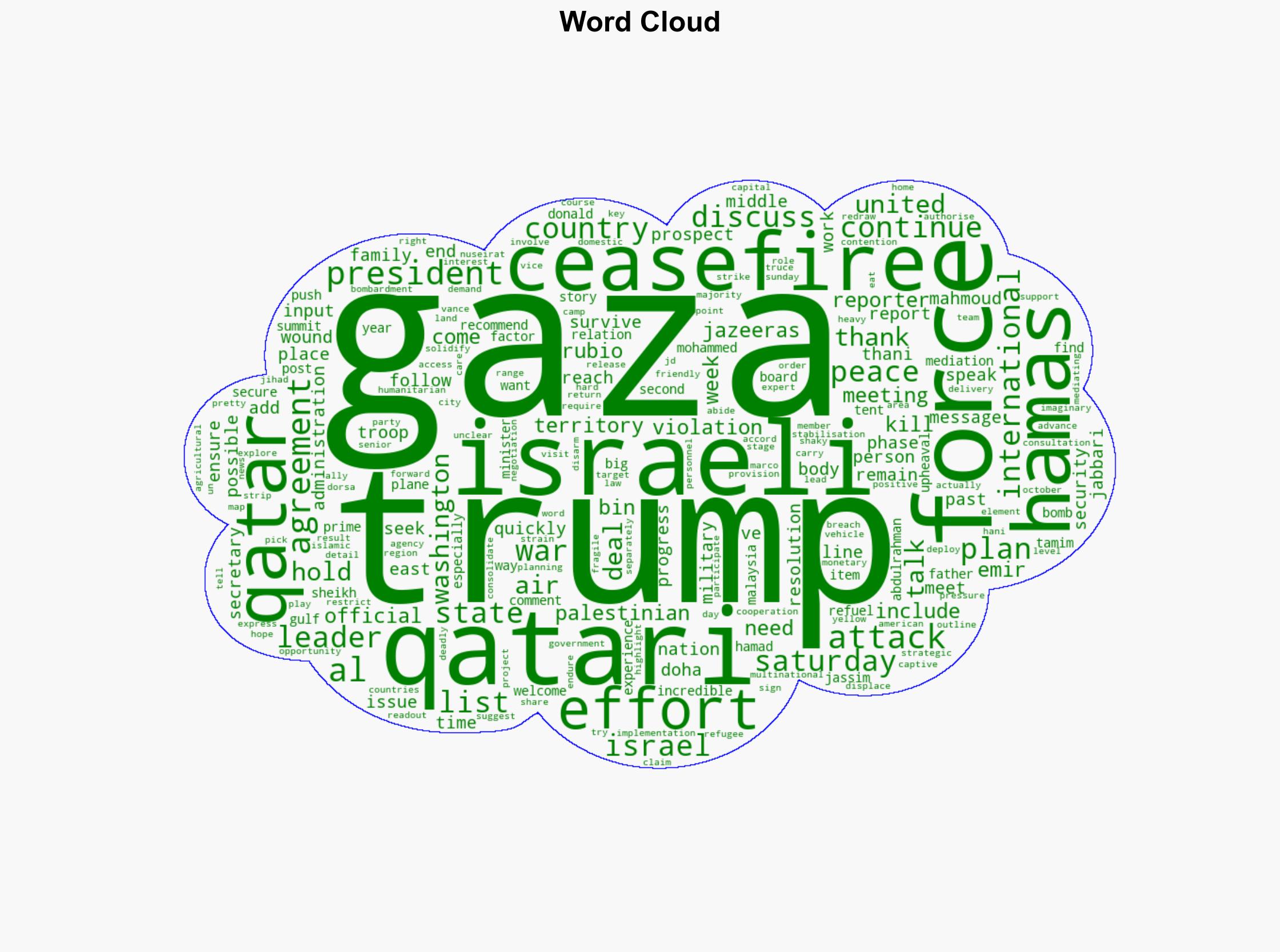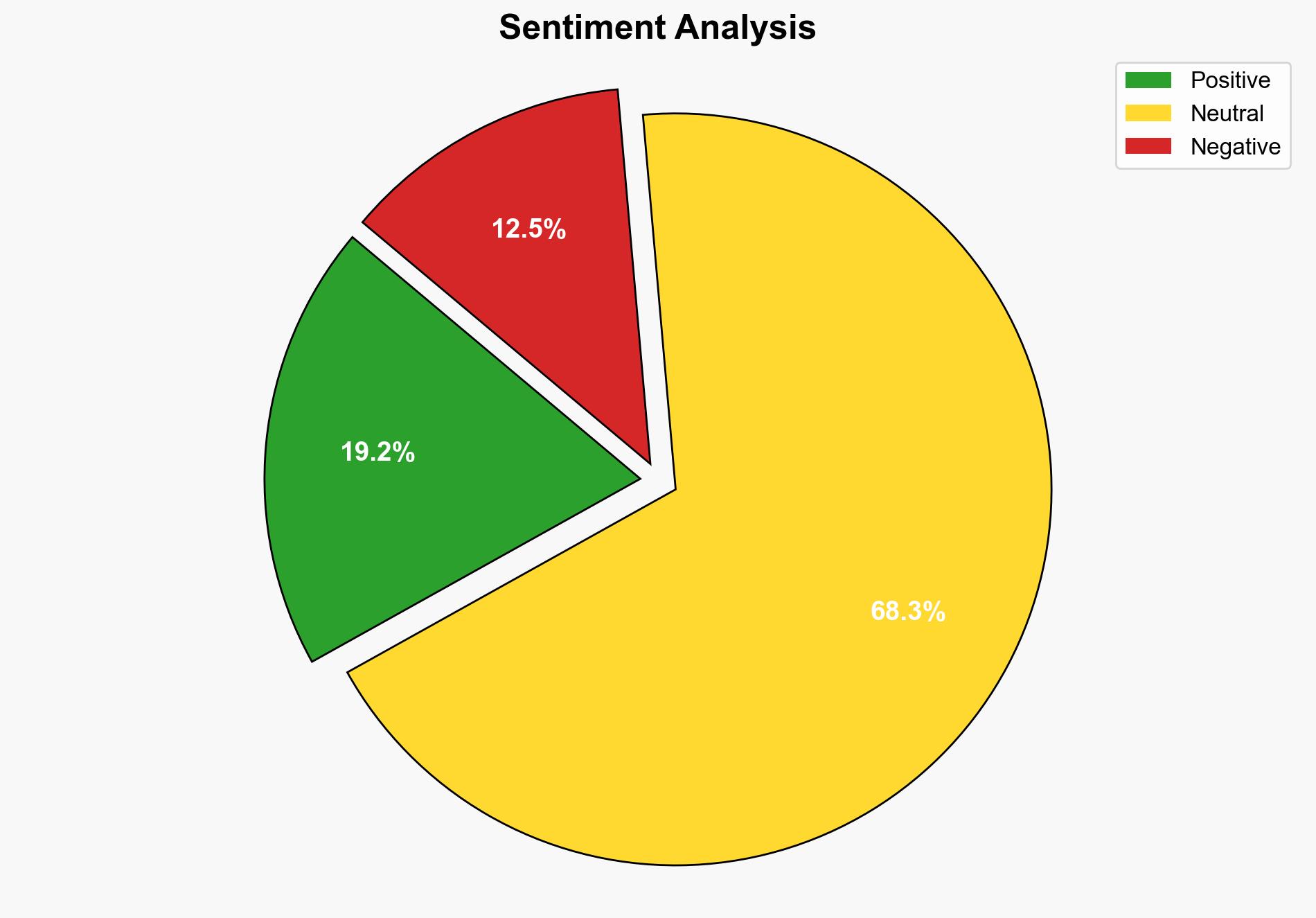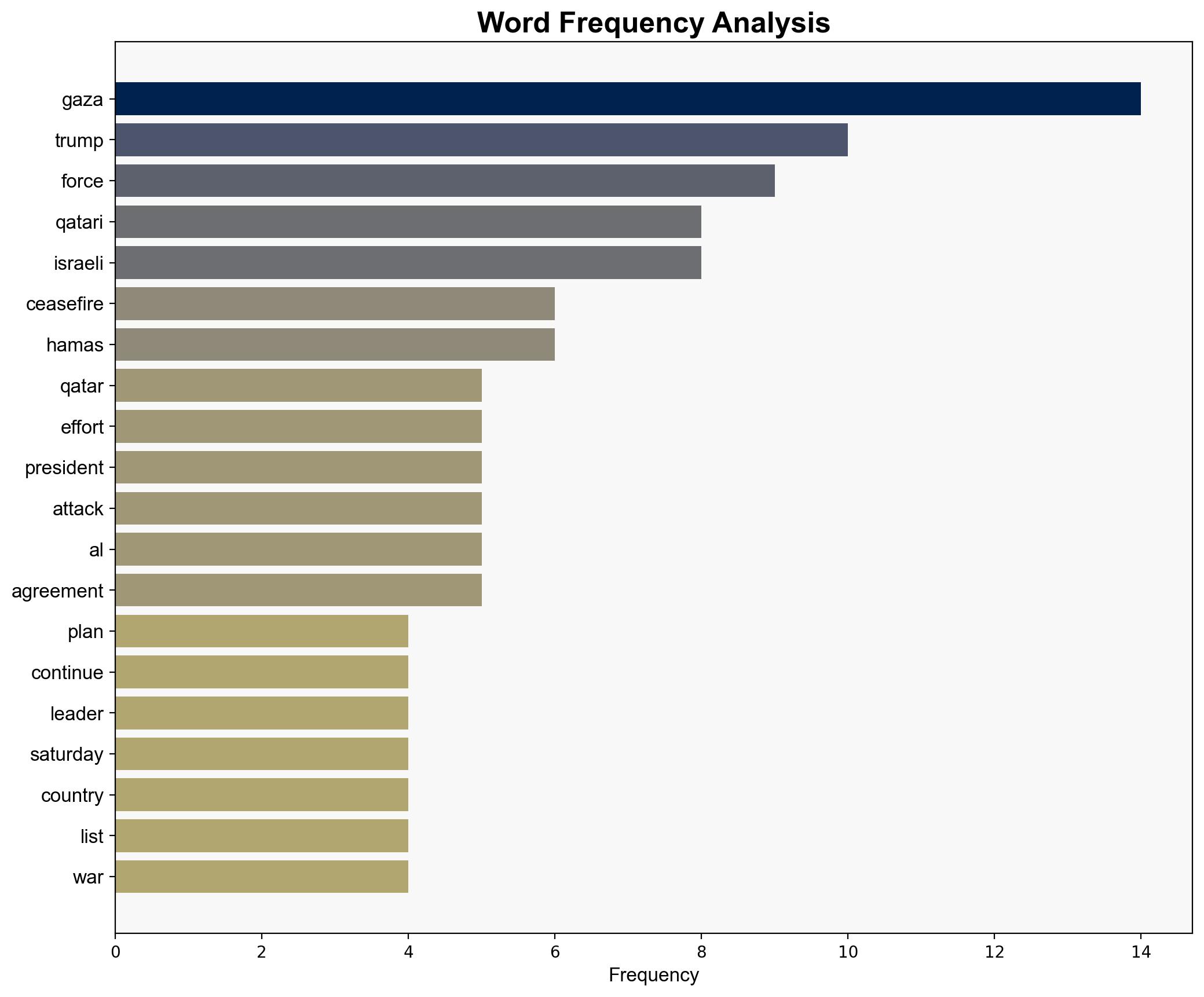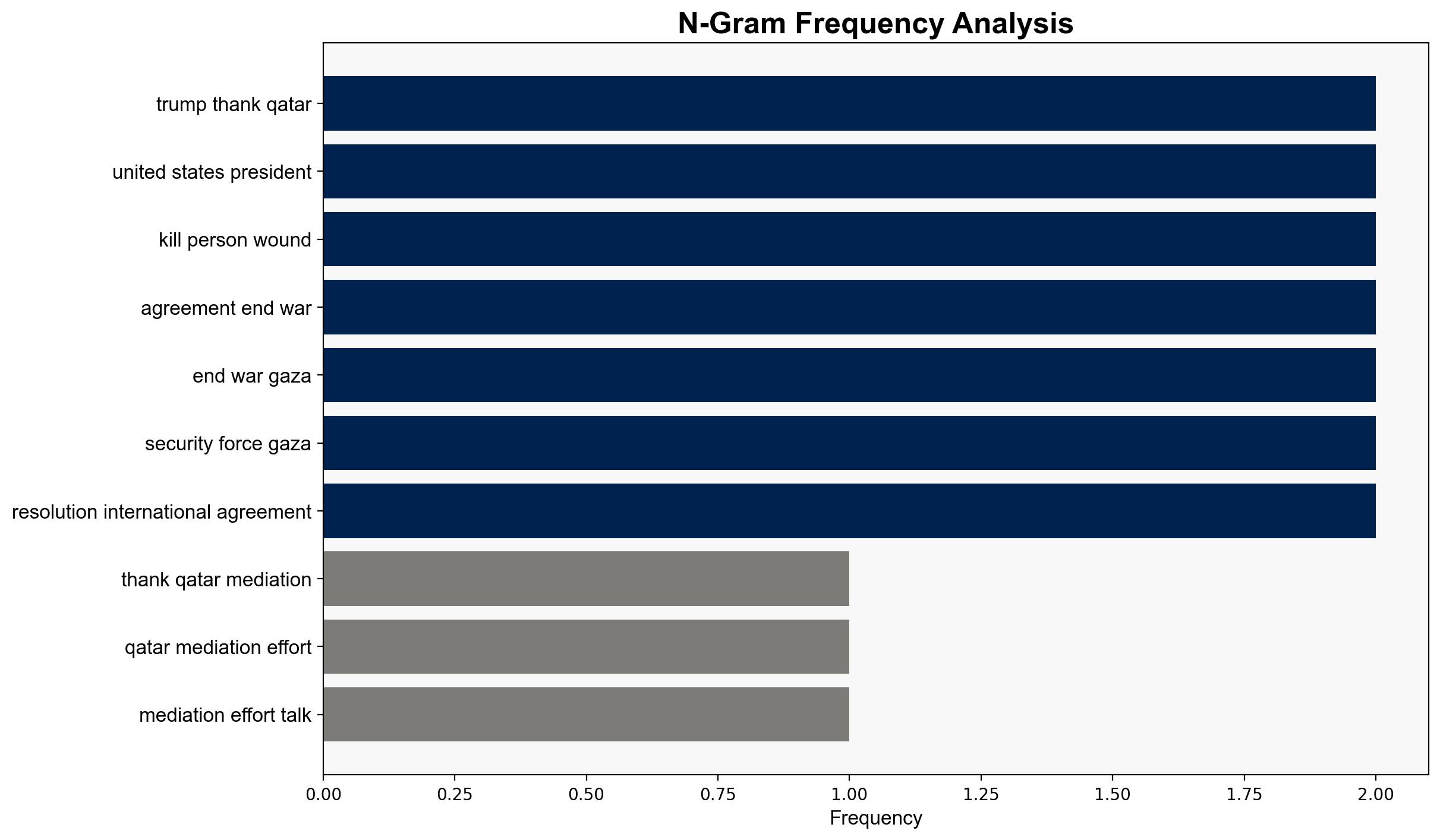Trump thanks Qatar for mediation efforts as talks on Gaza plan continue – Al Jazeera English
Published on: 2025-10-25
Intelligence Report: Trump thanks Qatar for mediation efforts as talks on Gaza plan continue – Al Jazeera English
1. BLUF (Bottom Line Up Front)
The most supported hypothesis is that Qatar’s mediation efforts are part of a larger strategic alignment with the United States to stabilize the Middle East, specifically focusing on the Gaza situation. This hypothesis is supported by the ongoing diplomatic engagements and the presence of high-level U.S. officials in the region. Confidence level: Moderate. Recommended action: Enhance diplomatic channels with Qatar and other regional players to ensure sustained peace efforts and monitor compliance with ceasefire agreements.
2. Competing Hypotheses
1. **Qatar’s Mediation as Strategic Alignment with the U.S.:** Qatar is actively mediating in the Gaza conflict as part of a broader strategic partnership with the United States, aiming to stabilize the region and enhance its geopolitical influence.
2. **Qatar’s Mediation as a Tactical Move for Regional Influence:** Qatar’s involvement is primarily driven by a desire to increase its regional influence and leverage in Middle Eastern politics, using the Gaza conflict as a platform to assert its diplomatic capabilities independently of U.S. interests.
Using ACH 2.0, the first hypothesis is better supported due to the presence of high-level U.S. officials in the region and the emphasis on strategic cooperation mentioned in the talks.
3. Key Assumptions and Red Flags
– **Assumptions:**
– Qatar’s mediation efforts are genuine and not a facade for other motives.
– The U.S. and Qatar share aligned interests in the Middle East peace process.
– **Red Flags:**
– Lack of clarity on the specifics of the ceasefire agreement and the role of international security forces.
– Potential bias in reporting, as the source may emphasize certain narratives over others.
– **Blind Spots:**
– The internal political dynamics within Qatar that might affect its foreign policy.
– The reaction of other regional powers to Qatar’s increased involvement.
4. Implications and Strategic Risks
– **Geopolitical Risks:** Increased involvement of international forces in Gaza could lead to regional tensions, especially if perceived as foreign intervention.
– **Economic Risks:** Prolonged instability in Gaza may disrupt regional trade routes and economic cooperation.
– **Psychological Risks:** Continued violence and ceasefire violations could exacerbate humanitarian crises and fuel anti-Western sentiments.
5. Recommendations and Outlook
- Enhance intelligence sharing with Qatar to monitor ceasefire compliance and anticipate potential violations.
- Engage with other regional stakeholders to build a broader coalition supporting the peace process.
- Scenario Projections:
- Best: Successful stabilization of Gaza with international support, leading to long-term peace.
- Worst: Breakdown of ceasefire leading to renewed conflict and regional instability.
- Most Likely: Continued diplomatic negotiations with intermittent ceasefire violations.
6. Key Individuals and Entities
– Donald Trump
– Tamim bin Hamad Al Thani
– Sheikh Mohammed bin Abdulrahman bin Jassim Al Thani
– Marco Rubio
– JD Vance
7. Thematic Tags
national security threats, regional diplomacy, Middle East peace process, international mediation




